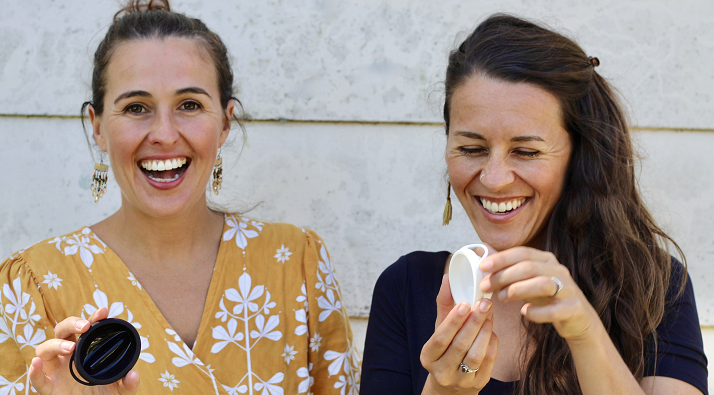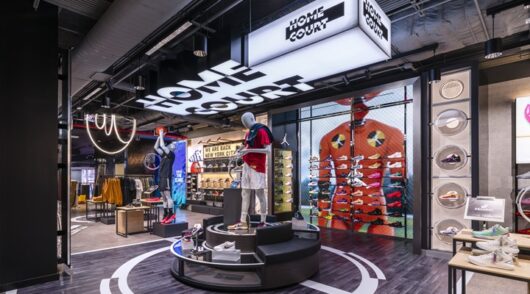Femtech company Hey Zomi is benefiting from, and driving, a more socially aware and eco-conscious customer base, that is refusing to settle for subpar period management and care. Founded by sisters Zoe Fehlberg and Mika Koelma, Hey Zomi is the first reusable menstrual disc company to be designed and made in Australia. Koelma told Inside Retail that the desire for more sustainable and lifestyle-centric menstrual care products inspired her and her sister to launch the business earlier this year. A
ear.
As somebody who lives an outdoor lifestyle – regularly scuba-diving, mountaineering and trail running – Koelma noted that she frequently has limited, or no access, to bathrooms, making it extremely different to safely change period products.
Meanwhile, Fehlberg, who previously worked in corporate banking and finance, would often wear tampons longer than recommended because she was on the trade floor or in back-to-back meetings.
Speaking to friends, the siblings realised that it was common to be dissatisfied with, or engage in unsafe practices regarding period care, due to a wide range of factors.
Koelma tried menstrual cups – which didn’t work for her – before importing a menstrual disc from Canada. That experience ultimately drove her to expand the accessibility of reusable discs in Australia.
“[Hey Zomi] was built from our own experiences [as well as] other menstruators. It’s so evident that period care is still below par, and we wanted to make our own reusable menstrual discs,” she said.
Koelma and Fehlberg worked with silicone engineers to manufacture locally, prototyped five menstrual discs to get the right size, fit and flexibility, designed a handle to help with removal and patented a design.
Koelma explained that the Hey Zomi mission is to “have periods on our terms.”
“It’s not just finding a period solution, but finding a lifestyle solution for menstruators,” she said.
Game changer
Initially funded via private savings, Hey Zomi took its first pre-orders in December 2022 before officially launching in April this year.
Koelma said that the business has subsequently seen an “explosion in sales”, and are moving from packing orders in their garage, to a large-scale fulfilment centre.
She noted that consumers have found a number of benefits attached to reusable menstrual discs, compared to cups.
According to Koelma, the discs last all day and are more comfortable to wear because they don’t use suction to stay in place. The brand has also received feedback from consumers that it has helped to alleviate period pain.
“I think it’s a bit of a game changer for a lot of menstruators out there. The products are made from medical grade silicone, comply with TGA regulations and we’re really proud that it’s Australian designed, owned and made. It’s also cost effective,” she said.
She added that the product packaging is compostable, thus saving products from going to landfill. This, Koelma said, is an important consideration as 200,000 pounds of disposable menstrual products end up in landfill every year.
Hey Zomi is also donating five per cent of sales to Share the Dignity, which fights against period poverty.
Breaking down stigmas
The femtech industry is projected to reach $20 billion globally by 2030. This growth has been facilitated by emerging technology and more awareness, with more people sharing their experiences on social media.
Modibodi’s chief marketing officer, Liana Lorenzato told Inside Retail that period care products and technology have continued to evolve and improve over the years. As Australia’s original leak-proof apparel brand, Modibodi has played a role in this shift.
“Back in 2011, in a time where tech and business sectors were notoriously dominated by men, the obvious challenge was convincing investors to back
a product that was ‘taboo’ and would shake up the period care industry,” Lorenzato said.
“With the idea behind Modibodi, a whole new product category and space had to be created, on a topic that most people and retailers were not comfortable speaking openly about.”
Despite not generating investment in the early stages of the business, investors came on board around 2019 – following strong projected revenue numbers – before Modibodi was acquired by Essity.
“Modibodi continues to pave the way for more and more brands to enter the category, [which] more or less didn’t exist 10 years ago,” she said.
More work to be done
As conversations about period care products have become less taboo, there has been a push toward affordability.
Despite the removal of the ‘tampon tax’ in Australia in 2019 being a positive step, Lorenzato said that more work needs to be done in this space.
“With period poverty at a high in Australia and our Federal Government promising greater commitment to tackling climate change, sustainable and reusable underwear really should be a prominent part of how people manage their periods going forward,” Lorenzato said.
“There is certainly a long way to go in terms of government funding and support for health and menstrual care initiatives in Australia.”
Woolworths, Coles and international expansion
Koelma said that people who menstruate are more open to sharing their experiences, and are discovering new products that work well for them.
She added that finding products that fit a person’s lifestyle is much more appealing than “whacking a pad on [and] having to go about your day.”
“There’s a huge behavioural change that’s taking place,” she said. “I think the increase in sales [is] because people are on the hunt for something better, and that works in their life.”
Regarding future plans, Hey Zomi has its eyes on international expansion. The brand already has wholesalers in Austria and Thailand, and has a particular focus on the US market.
Koelma said that entering the supermarket landscape would make Hey Zomi more accessible for consumers, but it is still working on establishing systems and structures to make this possible.
“Who knows, at the end of the year, you could see Hey Zomi discs in Woolworths and Coles,” she said.
“That would be awesome, and our sights are set on that for sure.”







